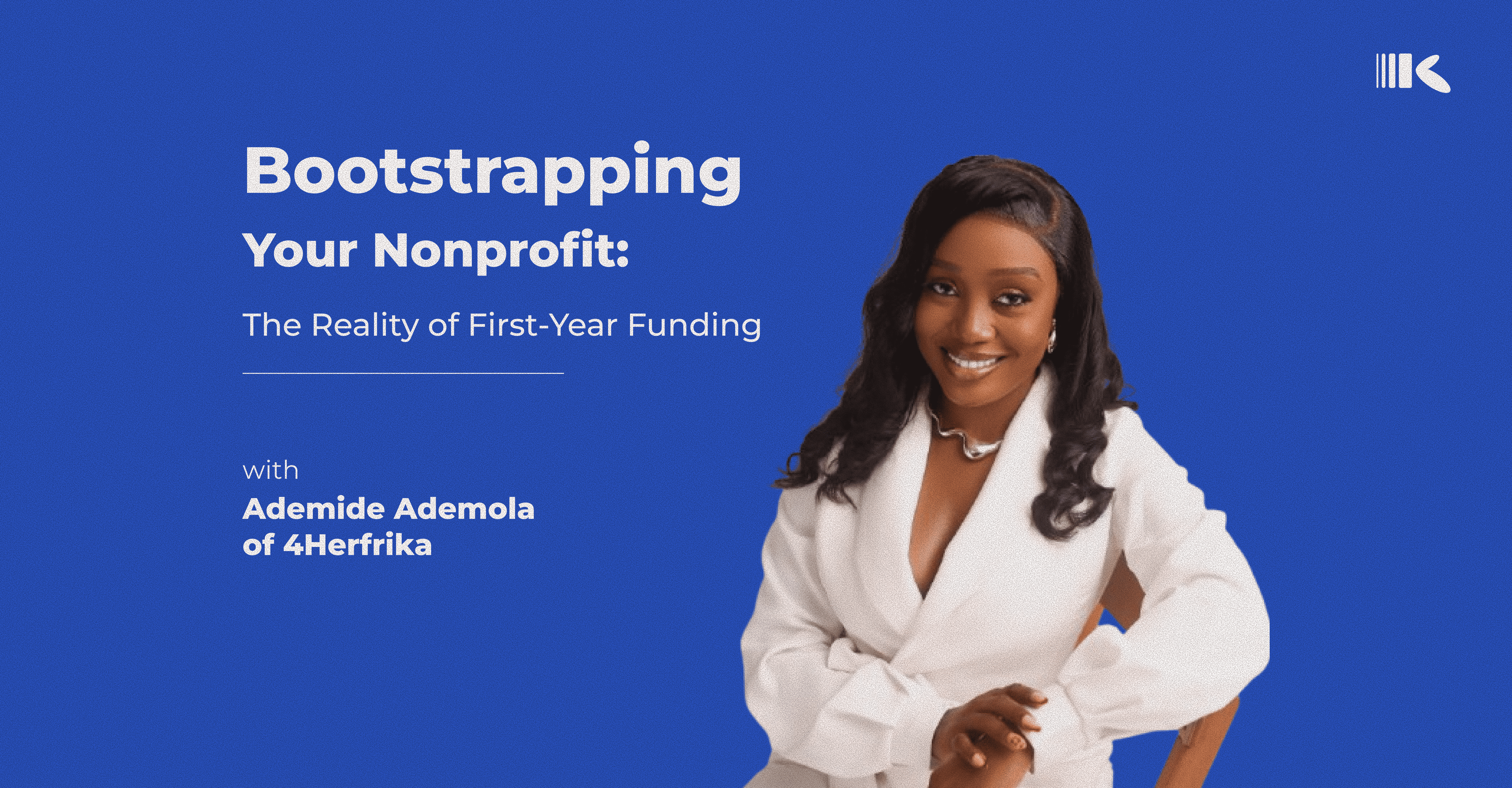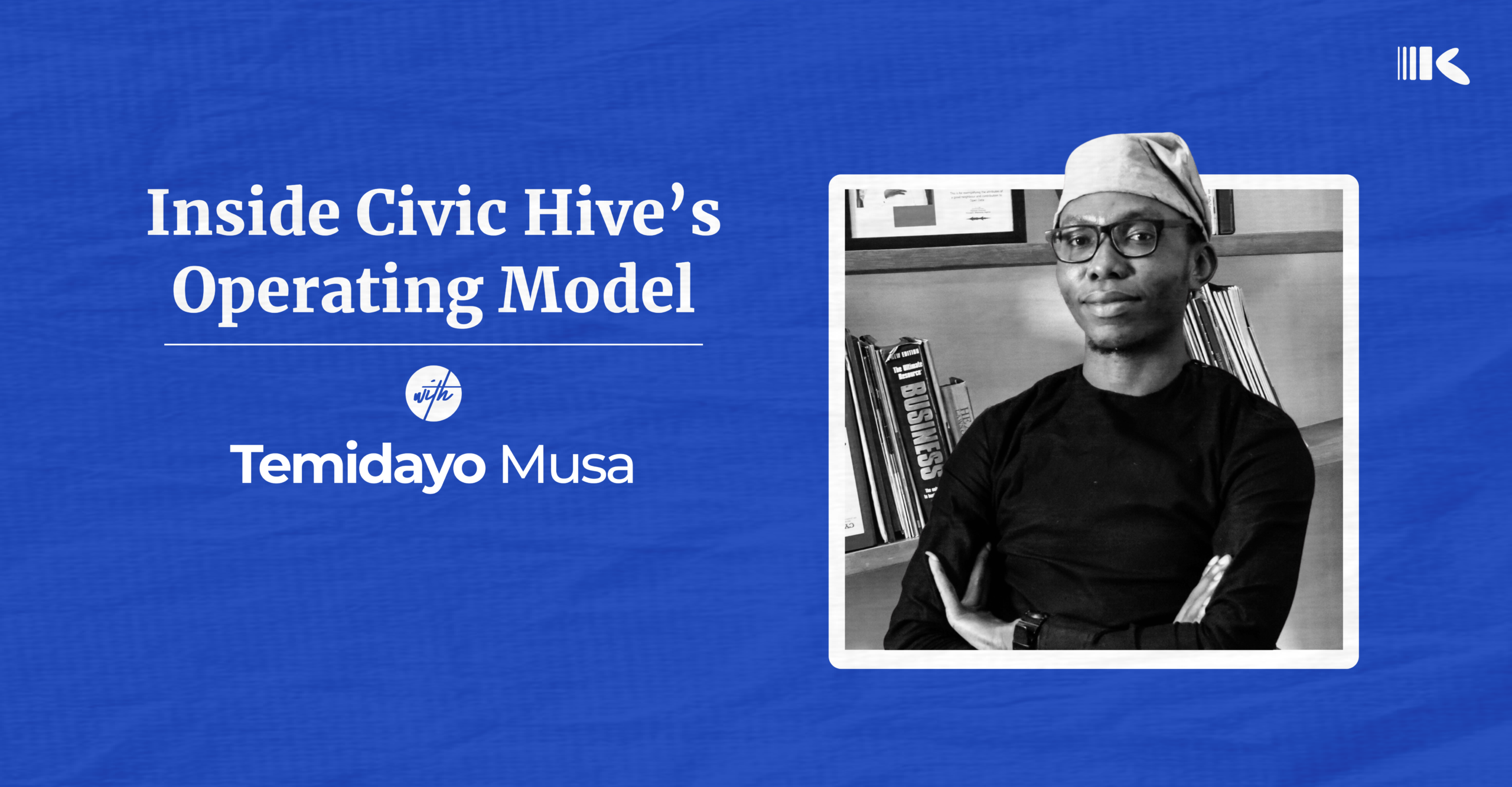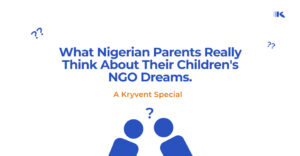Imagine building something that lights up thousands of lives but paying the price with your own comfort, your savings, and sometimes, your last meal.
That’s the story of Ademide Ademola, a young woman who didn’t wait for grants, donors, or applause to start her dream. For her, Impact couldn’t wait and instead, she used her salary to build 4Herfrika, a pan-African movement that is raising world-class women leaders across campuses.
I spoke with Ademide about what it truly meant to bootstrap a nonprofit from the ground up, the real cost of social impact, and the hope that kept her going on days when her account balance says otherwise.
Hi Founder, how are you today?
I am doing great, Trust you are fine too?
Yes thanks, Can we meet you?
My name is Ademide Ademola.
What do you do for a living?
I am a development communications specialist by profession. What I do is, I craft stories and communication strategies for various sectors in the development space to help achieve their goals.
What does your nonprofit do, and how many years has it been running for?
The name of my nonprofit is 4Herfrika. It is an organisation focused on helping girls in tertiary institutions to access mentorship, skill empowerment, knowledge, and capacity building. Our focus is to raise world-class women leaders in a world where it is not always typical for women to lead. We want to go the extra mile to amplify the voices of young girls, especially young black girls, so they can reach their full potential.
4Herfrika is a pan-African movement. We are in 5 African countries and currently active in 25 campuses. Our mission is simple: raise world-class women leaders by giving them a voice, a platform, and resources by partnering with organisations and stakeholders who support women. It’s only just a year old; we launched last July and this marks our year anniversary. Many people find it unbelievable that it’s been only a year.
What has the first year been like, what were the finances like for your projects?
Our finances this past year have been intense but I can’t say the exact figures off the top of my head. We’re currently working on our landscape report which will be available soon. We’ve had a lot of events and a myriad of projects that we executed well within this first year. Generally speaking, our finances and budgets have been quite overwhelming.
Would you say your salary bootstrapped the nonprofit?
As a founder, yes, I bootstrapped with my salary. I am still bootstrapping. I currently work as the communications person for Tracka, BudgIT Foundation, and the salary I get from there is what I use to fund this organisation. It has not been easy. It has been a rollercoaster. Financially, it has been challenging. Personal savings and funds meant for food often go into it. There’s always something to cater for!
Social impact is such that because you see the lives that can be changed from a project, as a founder, you just put the money in and console yourself that it was impactful and people benefitted from it. I may not eat well today, but at the end of the day, the project was successful, and that is what matters.
How did that affect your personal finances?
I have been pulling funds from my Cowrywise savings, my money for rainy days, and it feels like it’s always raining in social impact. Anytime there is a project, that’s a rainy season, and you have to pull that money out. So yes, it has really affected my personal finances.
What has been the hardest part financially in running 4Herfrika?
The hardest part for me has been dealing with project budgets. When we have a project, I estimate the budget and get anxious seeing how much it costs. I always say prayers like, ‘God please provide.’
But one thing I’ve learnt is to leverage the resources around me. Sometimes I rely on friends, partnerships, schools, and different stakeholders. I just try to pitch and collaborate to mitigate the costs. But the hardest part remains knowing that social impact projects are not businesses, once you put in the money, it’s gone. You’re not expecting it back, so that can be really tough.
How about now, does your nonprofit accept external funding?
Yes, we accept external funding. Our registration was completed before we turned one, so now we can take external funds. Although we have not yet closed any grants specifically, we are strategically putting ourselves out there to get the right resources to take on even larger projects.
Do you have a system for structuring your personal finances and your nonprofit’s expenses?
Uhm, I kind of do. At the beginning of the month, I do some mental calculations of what my finances will look like. If I plan to prioritise personal finances over organisational spending in a particular month, I try not to run many projects, or I choose projects that require very little funding.
If I know that this month will involve a lot of personal commitments, I spend less on the organisation. But in months when I’m spending a lot on the organisation, I have to watch how I take Ubers, how much goes to takeaways and things like that, basically my personal spending. If I don’t track these spendings carefully, I could go broke before the 15th of the month. That’s how I plan ahead to sustain myself through each month.
If you were speaking to an early-stage founder on finance, what advice would you give?
First, register your NGO before you start taking on projects. If you start projects before registration, you will have to fund them from your personal income, but if you register early, you can begin applying for external funding immediately. NGO registration takes time, and if it hasn’t pulled through, you can’t apply for grants because you’ll be asked for your documents.
Secondly, if you’ve already launched and started projects, my finance advice is to leverage resources a lot. You can make a big impact with small amounts of money. If I had one million naira, I would simply scale up what I’ve been doing with small cash a hundred times. Leverage your connections and organisational resources so your personal finances don’t suffer. For example, when I have a project, I call my friends, ask them to speak at events, or even use venues they own.
Would you fund another nonprofit with your salary again in the future? Why?
Okay, I don’t think I will be funding another nonprofit (laughs). What is this question? I have not even recovered from founding this one.
Honestly, if I am going to own another organisation, like an entirely different one hmm… I do have an idea sitting pretty in my head; it is not something I plan to do even in the next five years. But if I eventually do it, I believe by then I will have the financial capacity, and I would strategise better to launch it under a body so my personal finances won’t suffer. I would just be sub-granting it.
What do you mean why(laughs)? Our organisation has branded T-shirts and I personally funded over 200 of them, including the cost of shipping them to different states. One time I called my friend and said,’Chinonso, you have to send me money now or I’ll just collapse’, this was because my finances were low and I wasn’t earning much. I would use my personal money for projects and end up looking like a zombie until my friends send me cash to hold myself for the rest of the month.
So no, there’s no way I would do that again. It is very unwise, but zeal and passion can make you do such things. Now, I have the zeal and passion, but with structure, experience, and a lot more wisdom than when I started. If I had the chance to start another nonprofit, I would definitely not bootstrap from personal funds.
Thank you so much for having me. This is my first media interview. Thank you for the spotlight and honour. I really loved it. I also checked your website and I love that you are featuring social impact founders. There isn’t much spotlight on us, and the work you guys are doing is also very admirable.
Take your flowers, Thank you Kryvent.
Closing Note
Ademide’s story is raw, honest, and deeply human. It shows us that while passion can fuel your dreams, it is wisdom, planning, and community that keep them alive. Her journey with 4Herfrika is a reminder that impact is rarely convenient but it is always worth it, especially when it leaves behind a generation of women unafraid to lead.



Wahala for aspiring founder of a non-profit😢